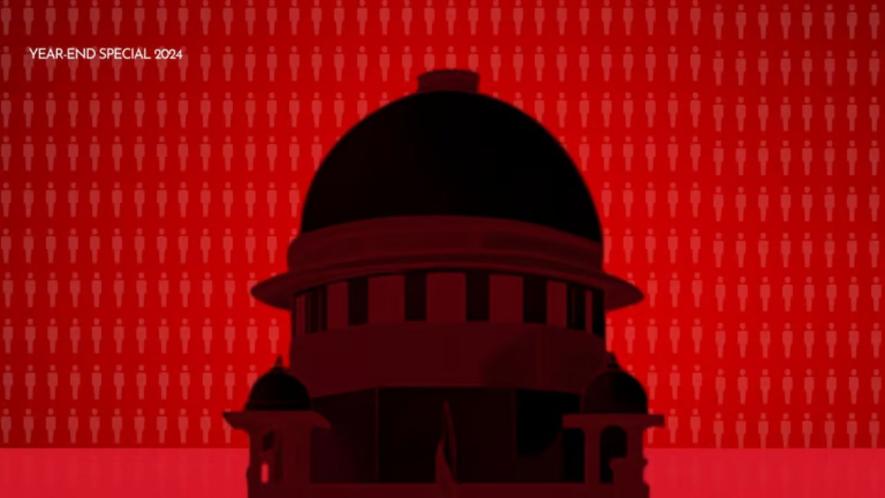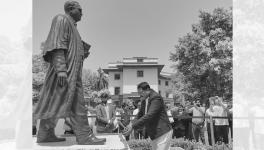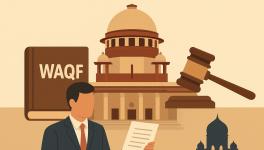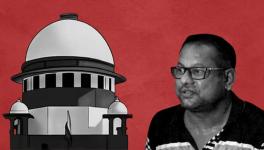The Year That Was—5: SC Votes for Fearless Listening

One of the pillars of India's democratic system is the freedom of speech and expression guaranteed under Article 19(1)(a) of the Indian Constitution. It is the right through which citizens voice their grievances and much more. However, this right has often been perilously balanced against laws that aim to maintain public order.
The Supreme Court’s judgment in Javed Ahmad Hajam versus State of Maharashtra serves as a poignant reminder of the thin line between protecting public order and stifling lawful dissent.
Brief facts of the case
This case arose from the dismissal of a petition by the Bombay High Court seeking the quashing of a first information report (FIR) against the appellant, Javed Ahmad Hajam, under Section 153A of the IPC.
The FIR was filed at Hatkanangale Police Station in Kolhapur, Maharashtra, based on two WhatsApp messages sent by the appellant in a group comprising students, parents and teachers of Sanjay Ghodavat College, where the appellant, a Kashmiri, worked as a professor, and one Whatsapp status update.
This case arose from the dismissal of a petition by the Bombay High Court seeking the quashing of a first information report (FIR) against the appellant, Javed Ahmad Hajam, under Section 153A of the IPC.
The messages read:
-
“August 5 – Black Day Jammu & Kashmir.”
-
“14th August – Happy Independence Day Pakistan.”
And the WhatsApp status update read:
-
“Article 370 was abrogated, we are not happy.”
The Supreme Court quashed the FIR against Javed Ahmad Hajam, ruling that his statements were not prejudicial to maintaining harmony among groups.
Justice A.S. Oka held that continuing the proceedings would constitute a gross abuse of the process of law.
The court emphasised the importance of distinguishing between protected free speech and actions that abuse this freedom. It clarified that to constitute a crime under Section 153A of the IPC:
-
The accused must possess clear intent to promote enmity.
-
The standard for determining enmity should be based on a reasonable person.
On the first point, the court extensively discussed decisions such as Manzar Sayeed Khan versus State of Maharashtra, which laid down that any indictment under Section 153A of the IPC should be accompanied by the ingredient of “intention” or “mens rea”, without which the entire process can be construed to be an abuse of process of law.
The court emphasised that freedom of speech includes the right to protest lawfully, and extending good wishes to another country, such as wishing Pakistan on its Independence Day, is a gesture of goodwill, not enmity.
The court observed that the language and circumstances surrounding the allegedly incriminating material must be analyzed in their entirety to assess whether it genuinely aims to incite enmity or disturb public order. Without firmly establishing the mens rea to incite disharmony, even harmless or neutral statements risk being misinterpreted, leading to arbitrary arrest.
When discussing the question of “when is enmity said to have been formed?”, the court rejected standards of reasonableness based on weak or overly sensitive individuals, especially in religious disputes, where people may easily take offence.
Instead, it was held that courts should adopt the perspective of strong-minded, firm, and courageous citizens to strike a balance between protecting freedom of speech and maintaining public order.
The Supreme Court reaffirmed the fundamental right to dissent under Article 19(1)(a), ruling that criticising the abrogation of Article 370 or referring to the day when it was abrogated as a “Black Day” is a valid expression of protest and cannot be construed as an offence.
The court emphasised that freedom of speech includes the right to protest lawfully, and extending good wishes to another country, such as wishing Pakistan on its Independence Day, is a gesture of goodwill, not enmity.
The court rejected the high court’s reasoning, which focused on potential offence to specific communities, and underscored that Section 153A requires both intent to incite hatred and a real likelihood of public disturbance.
It clarified that courts must evaluate such cases from the perspective of reasonable, strong-minded individuals, not those prone to taking offence. The purpose of the law is to prevent genuine harm to public order, not to suppress dissent or allow a heckler’s veto.
By quashing the FIR in its entirety, the Supreme Court highlighted that prosecutorial allegations must meet strict legal standards. Gaps between the accusations and the offence’s required elements cannot be filled with conjecture.
It reaffirmed that personal liberty should not be curtailed unless the prosecution presents clear, prima facie evidence of guilt.
This judgment upholds the principles of free speech, democratic dissent, and the protection of individual rights from arbitrary State action.
Get the latest reports & analysis with people's perspective on Protests, movements & deep analytical videos, discussions of the current affairs in your Telegram app. Subscribe to NewsClick's Telegram channel & get Real-Time updates on stories, as they get published on our website.
























